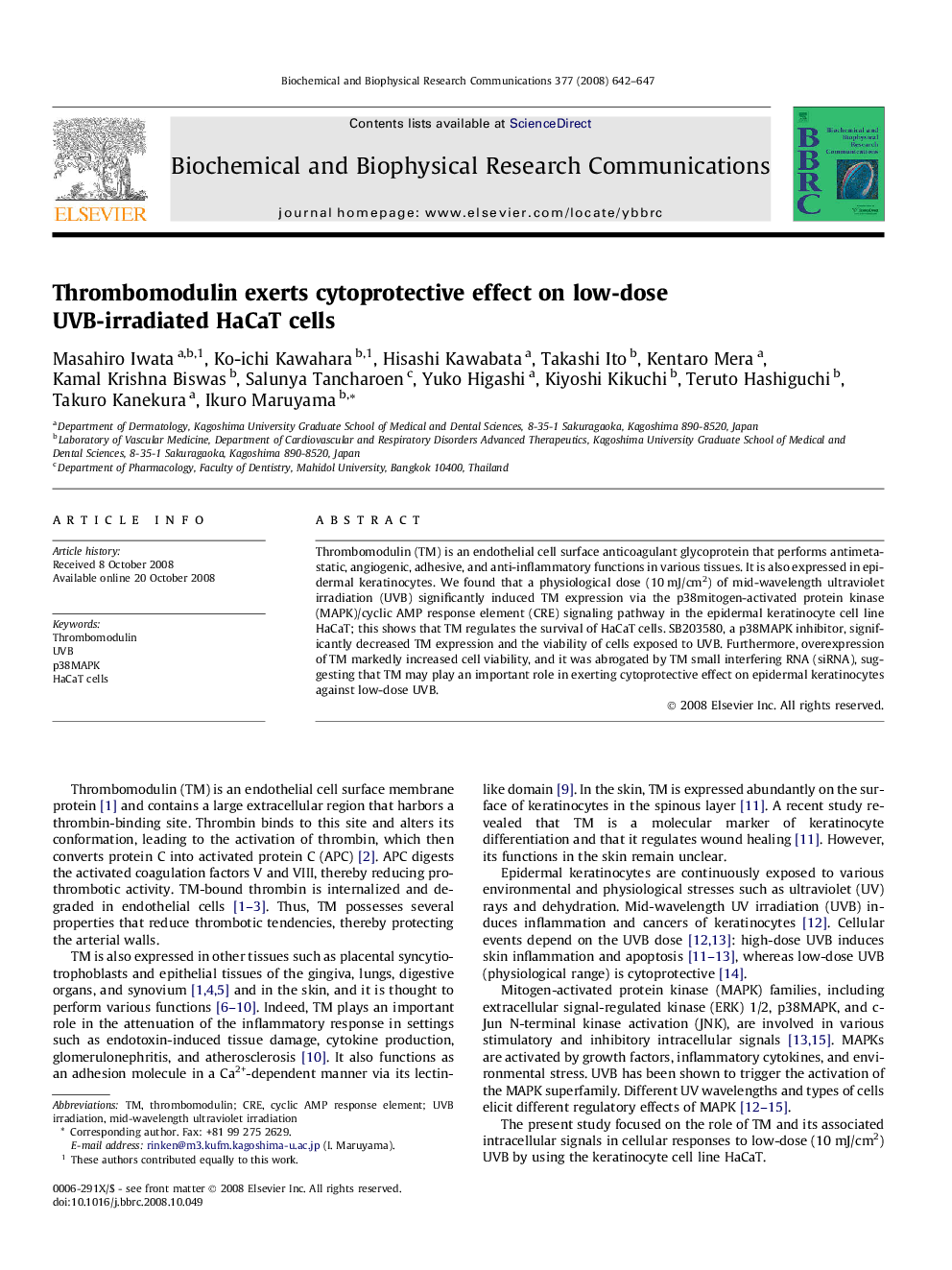| Article ID | Journal | Published Year | Pages | File Type |
|---|---|---|---|---|
| 1934891 | Biochemical and Biophysical Research Communications | 2008 | 6 Pages |
Abstract
Thrombomodulin (TM) is an endothelial cell surface anticoagulant glycoprotein that performs antimetastatic, angiogenic, adhesive, and anti-inflammatory functions in various tissues. It is also expressed in epidermal keratinocytes. We found that a physiological dose (10Â mJ/cm2) of mid-wavelength ultraviolet irradiation (UVB) significantly induced TM expression via the p38mitogen-activated protein kinase (MAPK)/cyclic AMP response element (CRE) signaling pathway in the epidermal keratinocyte cell line HaCaT; this shows that TM regulates the survival of HaCaT cells. SB203580, a p38MAPK inhibitor, significantly decreased TM expression and the viability of cells exposed to UVB. Furthermore, overexpression of TM markedly increased cell viability, and it was abrogated by TM small interfering RNA (siRNA), suggesting that TM may play an important role in exerting cytoprotective effect on epidermal keratinocytes against low-dose UVB.
Related Topics
Life Sciences
Biochemistry, Genetics and Molecular Biology
Biochemistry
Authors
Masahiro Iwata, Ko-ichi Kawahara, Hisashi Kawabata, Takashi Ito, Kentaro Mera, Kamal Krishna Biswas, Salunya Tancharoen, Yuko Higashi, Kiyoshi Kikuchi, Teruto Hashiguchi, Takuro Kanekura, Ikuro Maruyama,
